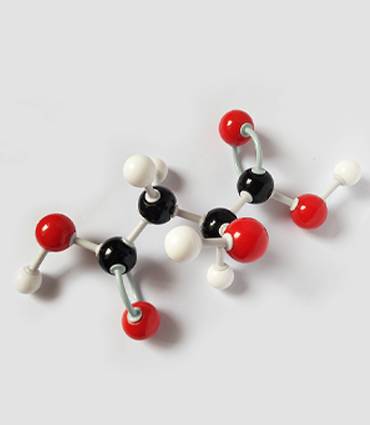- Home
- Our active ingredients
- Others
- Malic acid
Malic acid
-
Our active ingredients
- Fatty acids
- Algae
-
Others
- Glutamic acid
- Hyaluronic acid
- Lipoic acid
- Malic acid
- Arginine
- Astaxanthin
- Berberine
- Beta-carotene
- Betaine
- Butyrate
- Caffeine
- Carnitine
- Carnosine
- Choline
- Chondroitin sulphate
- Citicoline
- Citrate
- Citrulline
- Coenzyme Q10
- Collagen
- Creatine
- Cysteine
- Cystine
- Dimethylglycine
- Intrinsic factor
- Fibre
- FOS (fructooligosaccharides)
- Fucosyllactose
- GABA (gamma-aminobutyric acid)
- Royal jelly
- Glucosamine
- Glutamine
- Glutathione
- Glycine
- HMB (calcium β-hydroxy-β-methylbutyrate)
- Cod liver oil
- Shark liver
- Krill oil
- Inositol
- Inulin
- Lactoferrin
- Lutein
- Lycopene
- Lysine
- Melatonin
- Methionine
- MSM (methylsulphonylmethane)
- NAC (N-acetylcysteine)
- NADH (Nicotinamide Adenine Dinucleotide reduced form)
- Ornithine
- PABA (para-aminobenzoic acid)
- Apple pectin
- Pollen
- Polyphenols
- PQQ (pyrroloquinoline quinone disodium salt)
- Propolis
- Pterostilbene
- Quercetin
- Resveratrol
- Rutin
- Serine
- SOD (Superoxyde Dismutase)
- Taurine
- MCT (Medium chain triglyceride)
- Threonine
- Tryptophan
- Tyrosine
- Zeaxanthin
- PEA (Palmitoylethanolamide)
- D-mannose
- Postbiotic
- Enzymes
- Minerals and oligo-elements
-
Plants and fungi
- Acerola
- Milfoil
- Garlic
- Alchemilla
- Aloe vera
- Pineapple
- Angelica
- Aronia
- Artichoke
- Ashwagandha
- Astragale
- Hawthorn
- Elecampane
- Bacopa
- Bamboo tabashir
- Burdock
- Red beet
- Boldo
- Boswellia serrata
- Birch
- Broccoli
- Cocoa
- German chamomile
- Cinnamon
- Carob
- Caraway
- Blackcurrant
- Wheat ceramides
- Vegetal carbon
- Milk Thistle
- Chicory
- Quackgrass
- Chlorophyll
- Chrysanthellum
- Citrus
- Commiphora mukul
- Coriander
- Cranberry
- Turmeric
- Cypress
- Desmodium
- Echinacea
- Eleutherococcus
- Small-flowered fireweed
- Erysimum officinale
- Eschscholzia (California poppy)
- Fennel
- Fenugreek
- Butcher's broom
- Ash
- Fumitory
- Garcinia cambogia
- Chasteberry
- Ginger
- Ginkgo biloba
- Ginseng
- Pomegranate
- Griffonia
- Grindelia
- Guarana
- Marshmallow
- Gymnema sylvestre
- Witch-hazel
- Harpagophytum
- Hibiscus
- Hop
- Argan oil
- Sea buckthorn oil
- Evening primrose
- Borage oil
- Safflower oil
- Linseed oil
- Kudzu
- Red yeast rice
- Bird's-foot trefoil
- Maca
- Maitake
- Horse-chestnut
- Yerba Mate
- Melilotus officinalis
- Lemon balm
- Peppermint
- St. John's Wort
- Blueberry
- Olive
- Oregano
- Orthosiphon
- Nettle
- Fermented papaya
- Paprika
- Passion flower
- Wild Pansy
- Pumpkin seed
- Grapefruit seed
- Perilla
- Mouse-ear hawkweed
- Maritime pine
- Scots pine
- Dandelion
- Ribwort plantain
- Black pepper
- Polypodium leucotomos
- Horsetail
- Prune
- Blond Psyllium = Ispaghul
- Cherry peduncle
- Horseradish
- Grape
- Liquorice
- Meadowsweet
- Reishi
- Golden root
- Rosemary
- Saffron
- Salvia sclarea
- Willow
- Saw palmetto (Serenoa repens)
- Skullcap
- Shiitake
- Solidago
- Sophora japonica
- Tamarind
- White tea
- Green tea
- Thyme
- Red clover
- Tribulus terrestris
- Uña de gato (Uncaria tomentosa)
- Valerian
- Red vine
- Damiana
- Feverfew
- Cornflower
- Grapefruit
- Orange
- Mango (leaves)
-
Strains of flora
- Bifidobacterium animalis lactis BS01
- Bifidobacterium breve
- Bifidobacterium infantis BIO2
- Bifidobacterium longum BL03
- Lactobacillus acidophilus LA-3
- Lactobacillus helveticus Lafti® L10
- Lactobacillus plantarum BG112
- Lactobacillus reuteri DSM17648
- Lactobacillus reuteri LR92
- Lactobacillus rhamnosus GG
- Lactobacillus salivarius SP2
- Microbiota strains 1 item
- Streptococcus thermophilus SP4
- Lactobacillus casei LC03
- Vitamins
Malic acid

Description
Discovered and isolated from apple juice in 1785 by Carl Wilhelm Scheele, malic acid owes its name to the French chemist Antoine Lavoisier, author of the famous formula: "Nothing is lost, nothing is created, everything is transformed!". Lavoisier suggested using the Latin name of the apple tree, "malus", to name this fruit acid.
Malic acid is found in pears, cherries and quinces. This molecule has many health benefits, especially for the liver. Malic acid helps to bind heavy metals that accumulate in the liver and to eliminate them.
Moreover, malic acid is highly prized by sportsmen and women because it promotes recovery after exercise.
The benefits
Malic acid is a molecule naturally present in fruit.
Malic acid has a beneficial effect on the liver, a major detoxification organ.
Scientific publications
Malic acid is the subject of more than2612 scientific publications.











